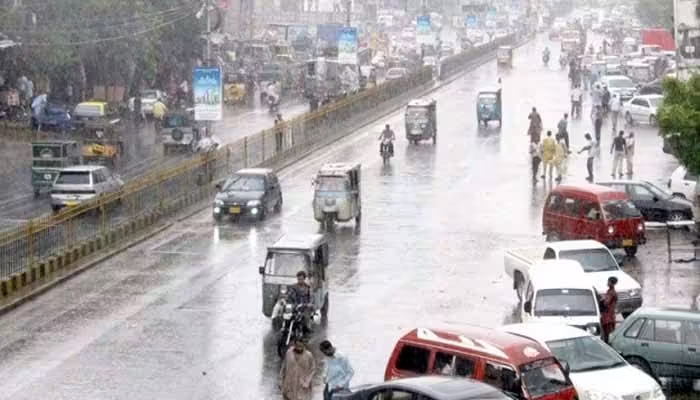Chief Meteorologist Sardar Sarfaraz has ruled out the possibility of heavy rain in Karachi this week. According to his forecast, there is no imminent monsoon spell that will affect Sindh, including Karachi. Despite this prediction, residents of Karachi experienced light drizzle and rain on Thursday morning, bringing a pleasant change to the city’s weather.
Light Drizzle in Karachi
On Thursday morning, various parts of Karachi witnessed a light drizzle and some rain showers. Areas such as Korangi, Shahrah-e-Faisal, Gulash Hadid, Gulistan-e-Johar, and Shah Faisal Colony received light rain, which significantly improved the weather conditions. The drizzle provided a respite from the typically hot and humid conditions of the city, making it a refreshing morning for the residents. However, this brief spell of light rain was not indicative of any major weather system affecting the region.
No Monsoon Spell for Karachi
Sardar Sarfaraz emphasized that the current weather conditions are not part of a monsoon system and that no significant rain is expected in Karachi this week. The meteorologist’s forecast suggests that Karachi will remain dry for the next few days, with no heavy rainfall expected to disrupt daily life. This news is likely a relief for the city’s administration, which often faces challenges managing the aftermath of heavy rains, including waterlogging and traffic disruptions.
Heavy Rain in Islamabad and Rawalpindi
While Karachi remains dry, the situation in Islamabad and Rawalpindi is quite different. These regions have experienced heavy rainfall, causing a significant rise in the water levels of local water bodies. The heavy rain in Rawalpindi, Islamabad, and their surrounding areas has led to an increase in the water level in Nala Lai, a major drain in the region.
Rising Water Levels in Nala Lai
The heavy downpour has resulted in the water level in Nala Lai reaching 21 feet, prompting the Water and Sanitation Agency (WASA) to issue an alert in the surrounding low-lying areas. This precautionary measure is essential to ensure the safety of residents living near the drain, as high water levels can lead to flooding and potential damage to property.
WASA has been closely monitoring the situation and reported that the water level in Nala Lai has started to recede after the rain stopped. At the Katarian point, the water level has decreased to 14 feet, while at Gwalmandi, it stands at 17 feet. Despite the reduction in water levels, the situation remains under close observation to prevent any unexpected incidents.
Impact on Residents
The heavy rain in Islamabad and Rawalpindi has had a mixed impact on residents. On one hand, the rainfall has brought much-needed relief from the heat, cooling down the temperatures and providing a refreshing change. On the other hand, the increased water levels in Nala Lai and other drains have raised concerns about potential flooding, especially in low-lying areas.
Residents in the affected regions are advised to stay vigilant and heed any warnings or advisories issued by the authorities. It is crucial to take necessary precautions to avoid any accidents or damage caused by sudden water surges.
Government Response and Preparedness
The government and local authorities are actively responding to the weather conditions in both Karachi and Islamabad/Rawalpindi. In Karachi, the administration continues to monitor the weather and is prepared to address any sudden changes that may occur. The light drizzle experienced on Thursday was managed efficiently, ensuring minimal disruption to daily activities.
In Islamabad and Rawalpindi, the response to the heavy rain has been swift and proactive. WASA’s alert and continuous monitoring of water levels in Nala Lai demonstrate the authorities’ commitment to ensuring the safety and well-being of residents. The reduction in water levels following the initial alert indicates that the situation is under control, but the authorities remain prepared for any further developments.
While Karachi enjoys a pleasant break from the usual heat with light drizzles, it remains free from any significant monsoon activity this week, as confirmed by Chief Meteorologist Sardar Sarfaraz. Meanwhile, Islamabad and Rawalpindi face challenges brought by heavy rainfall, leading to increased water levels in local drains. The authorities’ proactive measures and continuous monitoring are crucial in managing these weather-related challenges, ensuring the safety and well-being of residents in the affected regions. As the situation evolves, staying informed and prepared remains key for all residents.



